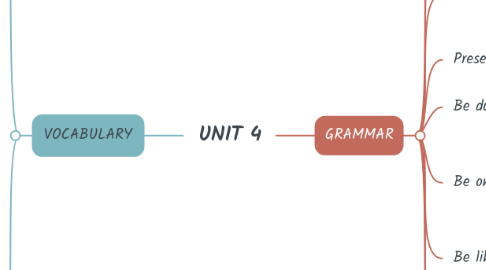
1. VOCABULARY
1.1. Academic collocations
1.1.1. Verb + noun
1.1.1.1. To provide evidence
1.1.1.2. To hold the view that
1.1.1.3. To voice some doubt
1.1.1.4. To lend support to
1.1.1.5. To pose a question
1.1.2. Preposition + noun
1.1.2.1. On the evidence of
1.1.2.2. In view of the fact that
1.1.2.3. To prove beyond doubtt that
1.1.2.4. To come out in support of
1.1.2.5. To call into question
1.1.3. Adjective + noun
1.1.3.1. Ample evidence
1.1.3.2. The prevailing view
1.1.3.3. Growing doubt
1.1.3.4. Whole hearted support
1.1.3.5. A hypothetical question
1.2. Suffixes
1.2.1. -able
1.2.1.1. Recognisable
1.2.1.2. Believable
1.2.1.3. Questionable
1.2.2. -ic
1.2.2.1. Scientific
1.2.2.2. Economic
1.2.2.3. Academic
1.2.3. -ful
1.2.3.1. Eventful
1.2.3.2. Peaceful
1.2.3.3. Sucessful
1.2.4. -ible
1.2.4.1. Sensible
1.2.4.2. Acessible
1.2.4.3. Comprehendsible
1.2.5. -less
1.2.5.1. Breathless
1.2.5.2. Harmless
1.2.5.3. Fearless
1.2.6. -al
1.2.6.1. Environmental
1.2.6.2. Logical
1.2.6.3. Viral
1.2.7. -ory
1.2.7.1. Preparatory
1.2.7.2. Introductory
1.2.7.3. Contradictory
1.2.8. -ive
1.2.8.1. Receptive
1.2.8.2. Collaborative
1.2.8.3. Productive
2. GRAMMAR
2.1. Be going to
2.1.1. For general plans and intentions for the future. It indicates that a decision about the future has alredy been made
2.1.1.1. I am going to France in the summer
2.1.2. Used for predictions when they are based on evidence
2.1.2.1. That is going to be a great idea
2.1.3. We can use was/were going to talk about "the future in the past"
2.1.3.1. We were going to go to the beach until he broke his leg the week before
2.2. Future simple
2.2.1. Will/ won´t are used to make factual predictions about the future. Will/ won´t tend to be eused nore in more formal speech and writing, while going to is often preferred in formal writing and everyday speech
2.2.1.1. In a year, we will graduate
2.2.2. We also use will/ won´t when we make a spontaneous decision about the future
2.2.2.1. We´ll walk you home, don´t worry
2.2.3. We can use would(n´t) in place of will/won´t to talk about 'the future in the past'
2.2.3.1. I though you wouldn't come
2.3. Present continuous
2.3.1. To talk about fixed arrengments. Often used a time expression such as next week.
2.3.1.1. My family is coming over next saturday to watch the Superbowl
2.4. Present simple
2.4.1. Used to refer to scheduled or timetabled events in the future
2.4.1.1. The match starts ast eight o´clock on monday
2.5. Be due to
2.5.1. +infinitive to refer to scheduled or timetable eventss in the future
2.5.1.1. The project is duet on monday
2.6. Be on the verge of
2.6.1. + -ing to say something eill happen in the immediate future. We can also use be about to + infinitive and be on the point of + -ing
2.6.1.1. The patient is on the verge of getting a cure
2.7. Be likely to
2.7.1. + infinite for a probabale future outcome
2.7.1.1. She is likely to get engaged tonight
2.8. Future continuous
2.8.1. To predict or talk about something in progress at the time in the future. The action has begun before a certain point in the future and is unfinished
2.8.1.1. We'll be eating icecream in Rome, this time next week
2.8.2. Something wich we think is inevitable in the future. It is often used to avoid suggesting intention
2.8.2.1. Won´t your father be taking you to the airport?
2.9. Future perfect simple
2.9.1. To focus on a completed action or event at a agiven time in the future. Often use by or before to indicate the time
2.9.1.1. They´ll have finished before nine in the afternoon
2.10. Future perfect continuous
2.10.1. Focus on the duration of an event or action that continues up to a given time in the future
2.10.1.1. They will have been doing the projet for over a week before it was all set
